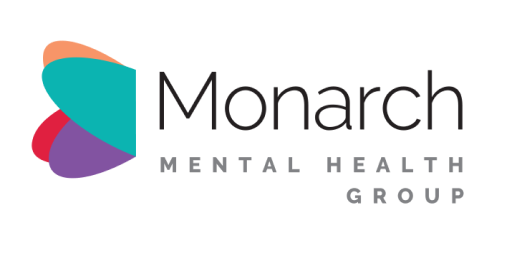Returning to civilian life can be one of the most challenging transitions for veterans, particularly for those struggling with post-traumatic stress disorder (PTSD). Many experience ongoing depression, anxiety, and emotional distress that make everyday life feel overwhelming. Traditional treatments, such as medication and talk therapy, work for some but not all, leaving many searching for alternatives. This is where TMS therapy for depression comes in as an effective treatment for Australian veterans.
Transcranial Magnetic Stimulation (TMS) therapy, a noninvasive brain stimulation treatment for PTSD and depression, is offering hope to veterans who have not found relief through conventional methods. By targeting areas of the brain associated with mood regulation, TMS is helping veterans in Australia manage both depression and PTSD symptoms, improving their quality of life.
Understanding the Link Between PTSD and Depression
PTSD and depression often go hand in hand. Many veterans experience persistent feelings of sadness, loss of interest in activities, fatigue, and difficulty concentrating. The trauma associated with military service can disrupt brain function, making it harder to regulate emotions and process stress in a healthy way.
While antidepressant medications and therapy are common treatments, they don’t always provide sufficient relief. Medications, in particular, can cause unwanted side effects such as fatigue, weight gain, or emotional numbness, which can make recovery even more challenging. For patients who need a new approach, research has shown that TMS therapy is proving to be a game-changer.
How Transcranial Magnetic Stimulation Therapy Works for Depression and PTSD
TMS therapy is a non-invasive, drug-free treatment that stimulates underactive parts of the brain involved with depression. Using magnetic pulses, also called magnetic energy, TMS targets and activates neurons in the prefrontal cortex, the region responsible for mood regulation and emotional processing. Research and clinical trials have shown that over time, by stimulating nerve cells, this therapy helps restore normal brain activity, reducing symptoms of depression and improving mental resilience.
Transcranial Magnetic Stimulation comes in a few different forms based on your diagnosis. Repetitive Transcranial Magnetic Stimulation (rTMS or repetitive TMS) is used for depression, anxiety, obsessive compulsive disorder (OCD), and chronic pain, with Deep Transcranial Magnetic Stimulation (DTMS) uses a specialised electromagnetic coil to deliver electromagnetic pulses deeper and more broadly within the brain compared to traditional TMS or rTMS treatment, and is used in treatment of major depressive disorders and OCD.
Unlike medication, which affects the entire body, TMS works by targeting specific parts of the brain without causing widespread side effects, making it an effective alternative to antidepressants. Each brain stimulation session is performed on an outpatient basis and lasts around 20 to 30 minutes, and most veterans complete a full treatment course over several weeks. Patients remain fully awake during treatment sessions and can resume daily activities immediately after each brain stimulation session, as it is painless and patients do not require anaesthesia.

How TMS Therapy is Helping Australian Veterans
For veterans in Australia, TMS therapy is proving to be a safe and effective treatment for depression, particularly when linked to PTSD. Here’s why more veterans are turning to TMS for support.
Reducing Symptoms of Depression Without Medication
Many veterans struggle with side effects from antidepressants or find them ineffective. TMS works as a non-pharmaceutical alternative that directly addresses brain function without impacting the entire body.
Improving Sleep and Emotional Stability
PTSD often causes insomnia, nightmares, and emotional numbness. By regulating brain activity, TMS therapy helps improve sleep patterns and emotional responses, making daily life more manageable.
Enhancing Brain Function for Long-Term Relief
TMS doesn’t just provide temporary symptom relief. It promotes lasting changes in brain function and mood control. Many veterans report continued improvement even after completing treatment, making it a long-term solution.
Increasing Quality of Life and wellbeing
Depression and PTSD can make it difficult to maintain relationships, work, or engage in hobbies. TMS helps veterans regain a sense of purpose and connection, improving their overall wellbeing and support.
Accessing TMS Therapy Through Monarch Mental Health Group
Veterans in Australia can receive TMS therapy at Monarch Mental Health Group clinics across NSW, Queensland, and Victoria. As a psychiatrist-led mental health provider, Monarch offers personalised treatment plans for patients that include TMS treatment as well as psychiatry services, psychotherapy, medication and antidepressants, and more based on your personal diagnosis, ensuring veterans receive the best possible care and support.
Many veterans can access TMS therapy through Department of Veterans’ Affairs (DVA) benefits or private health insurance. A referral from a GP or psychiatrist is required to begin treatment. Monarch Mental Health Group assists veterans in navigating this process, making it easier to access the care they need.
A Brighter Future for Veterans with PTSD and Depression
For veterans who have tried everything and still feel trapped by PTSD and depression, Transcranial Magnetic Stimulation therapy in the form of Repetitive Transcranial Magnetic Stimulation (rTMS) or Deep Transcranial Magnetic Stimulation (DTMS) offers a new, evidence-based opportunity for healing. It provides a safe, effective alternative to medication, helping veterans regain emotional balance, improve sleep, and rediscover joy in life.
If you or a loved one is struggling with PTSD and symptoms of depression or major depression, TMS may be the breakthrough treatment you’ve been searching for. Monarch Mental Health Group is committed to helping Australian veterans access high-quality mental health care and professional medical advice based on scientific research, helping you take the first step toward recovery. Contact us today to learn more about how TMS therapy can help.
FAQs
How can veterans access Transcranial Magnetic Stimulation therapy in Australia?
Veterans can access Repetitive Transcranial Magnetic Stimulation (rTMS) or Deep Transcranial Magnetic Stimulation (DTMS) through Monarch Mental Health Group’s clinics across NSW, Queensland, and Victoria. Many veterans qualify for treatment under DVA benefits or private health insurance. A referral from a GP or psychiatrist is required. Contact Monarch Mental Health Group to discuss eligibility and treatment options.
Is TMS therapy covered by DVA benefits for Australian veterans?
Yes, eligible veterans may access Transcranial Magnetic Stimulation (TMS) therapy for PTSD and depression through the Department of Veterans’ Affairs (DVA). Coverage depends on individual circumstances and requires a referral from a psychiatrist. Monarch Mental Health Group’s professional team can assist with eligibility checks and referrals to ensure veterans receive the care they need.
Where can veterans receive TMS therapy through Monarch Mental Health Group?
Monarch Mental Health Group offers Transcranial Magnetic Stimulation (TMS) therapy at multiple clinics across Sydney, Melbourne, and Brisbane, as well as other locations in NSW, Queensland, and Victoria. Our clinics provide psychiatrist-led treatment plans tailored to each veteran’s needs. Contact us to find your nearest location and speak to our team for assistance in accessing this treatment.
How effective is TMS for veterans with PTSD?
TMS research has shown promising results for veterans with PTSD, particularly for those who have symptoms of depression or major depressive disorder, and who have not responded well to traditional treatments like antidepressants. Research supports improvements in mood, sleep, and overall wellbeing for a high rate of patients. Many veterans report long-term symptom relief, making TMS an effective treatment and a valuable alternative to medication-based treatments.
What should veterans expect during TMS treatment?
Transcranial Magnetic Stimulation (TMS) or repetitive TMS treatment sessions for PTSD are non-invasive, painless, and last about 20 to 30 minutes. Treatment usually involves five sessions per week for several weeks. You stay fully awake during sessions, with no need for anaesthesia or downtime. Monarch Mental Health Group’s experienced team ensures a comfortable, supportive environment throughout the treatment process alongside professional medical advice for veterans in Australia with symptoms of depression or treatment resistant depression.

